![]() Curriculum
Curriculum


![]() Curriculum
Curriculum
![]() Introduction
Introduction
The curriculum, activities, systems and the entire ethos of the institution is designed to make the children
discover themselves and their environment through exploration and discovery. It lays emphasis on learning by
doing. Art, Music, Dance are some of the mediums of imparting education. The canvas of learning
is painted with systematic, planned academic coverage blended with a plethora of competitions, events, celebration
and colourful school programmes.
Thus, the school strives to empower individuals, assure high quality learning through co-curricular activities and
programmes and pave the way to a learning society.
The academic institution is dedicated to nurturing responsible, ethical global leaders through quality education. It upholds a strong commitment to social, ecological, and economic sustainability, encouraging students to make meaningful contributions to society and the world.
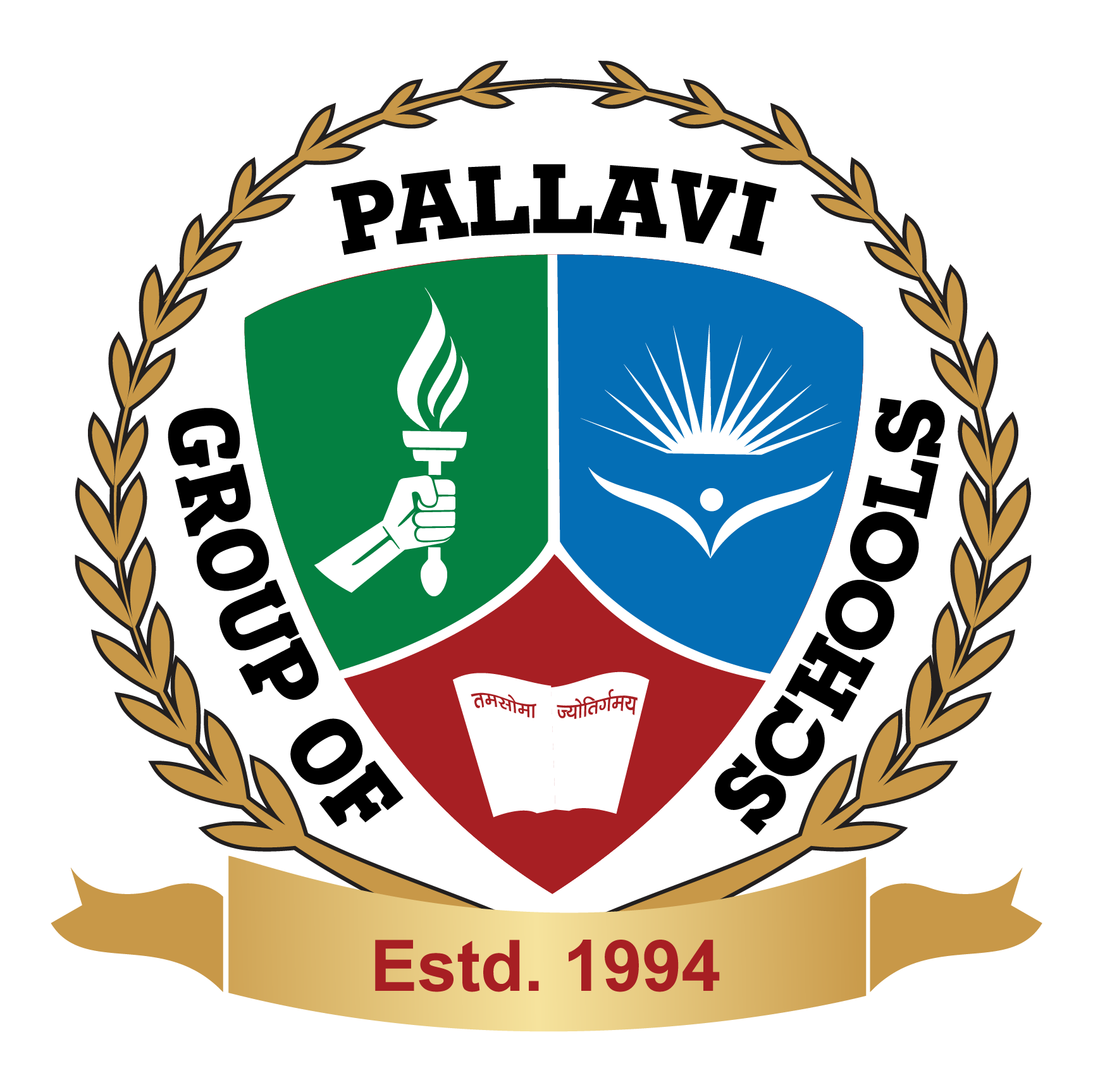
We aim to create an innovative learning environment where educators and students actively collaborate to enhance teaching and learning practices. Our holistic approach fosters critical thinking, creativity, personal growth, and a passion for lifelong learning.
![]() Curriculum
Curriculum
Pallavi believes in offering you exceptional support to achieve your career goals.
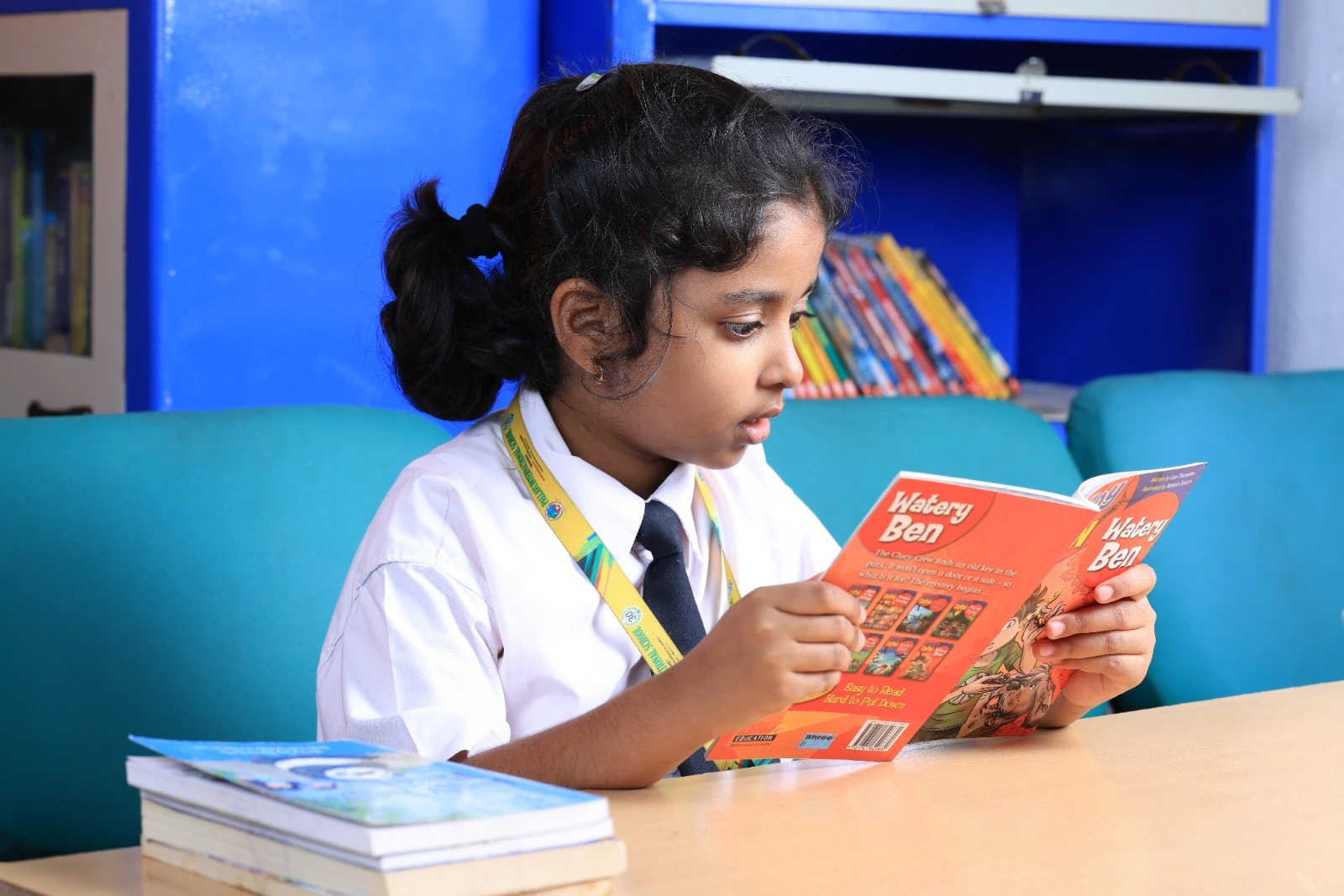
Grades 1 & 2
Core concepts in language, maths, and science introduced with fun and exploration.

Grades 3-5
Interdisciplinary approach fostering curiosity, logic, and teamwork.
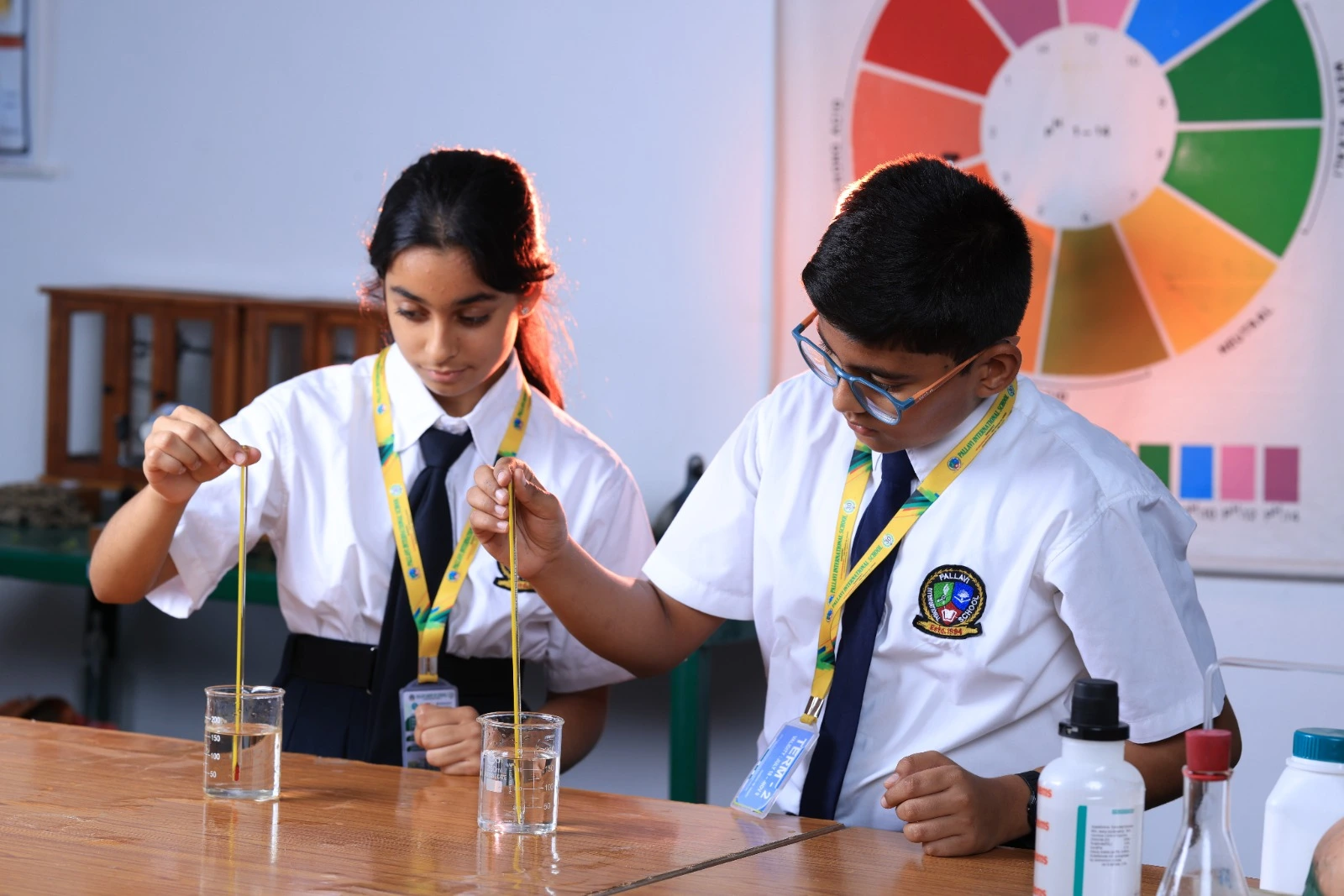
Grades 6–8
Concept clarity, foundation for board exams, and personal growth.
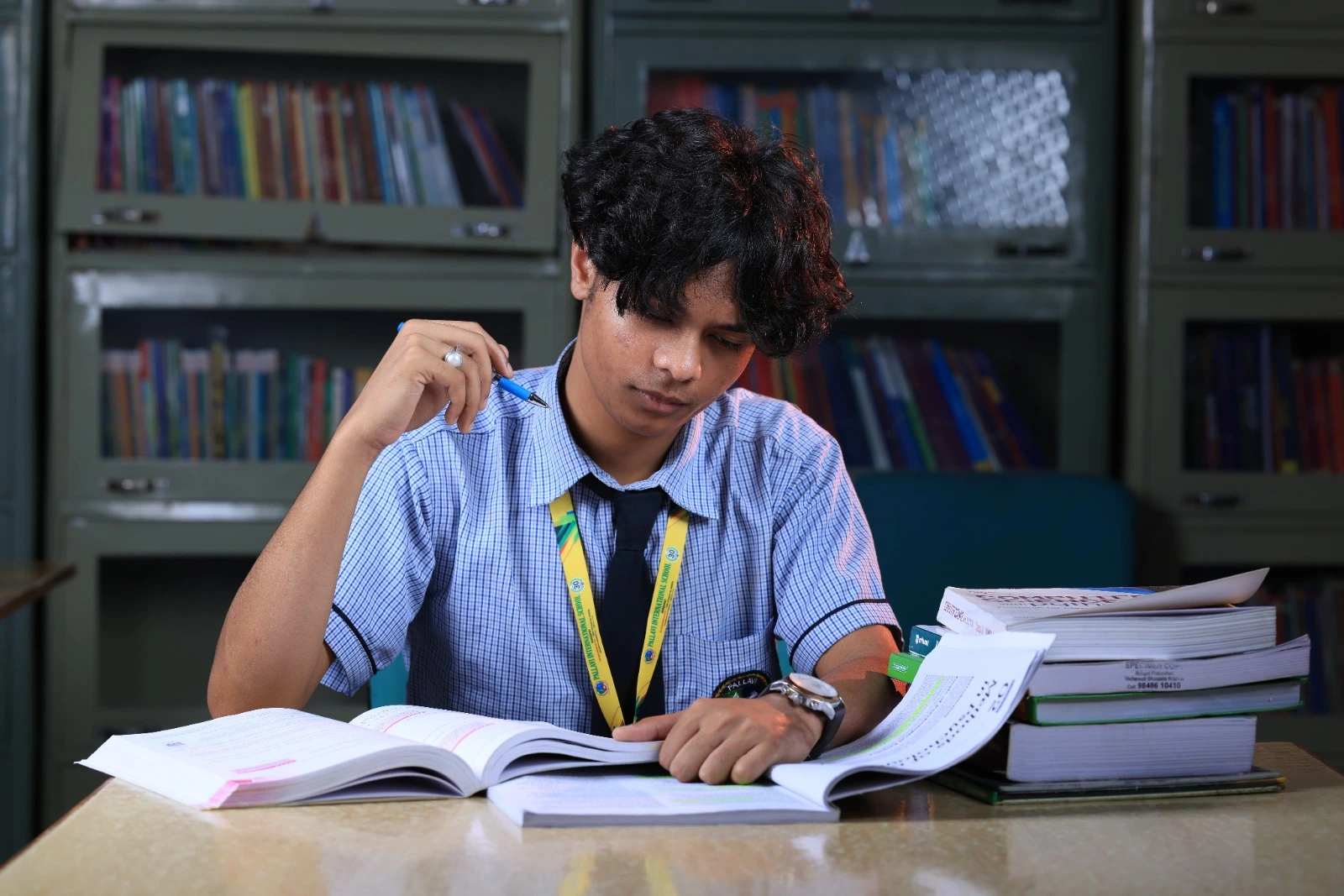
Grades 9–12
Specialized learning paths, subject mastery, and competitive preparation.
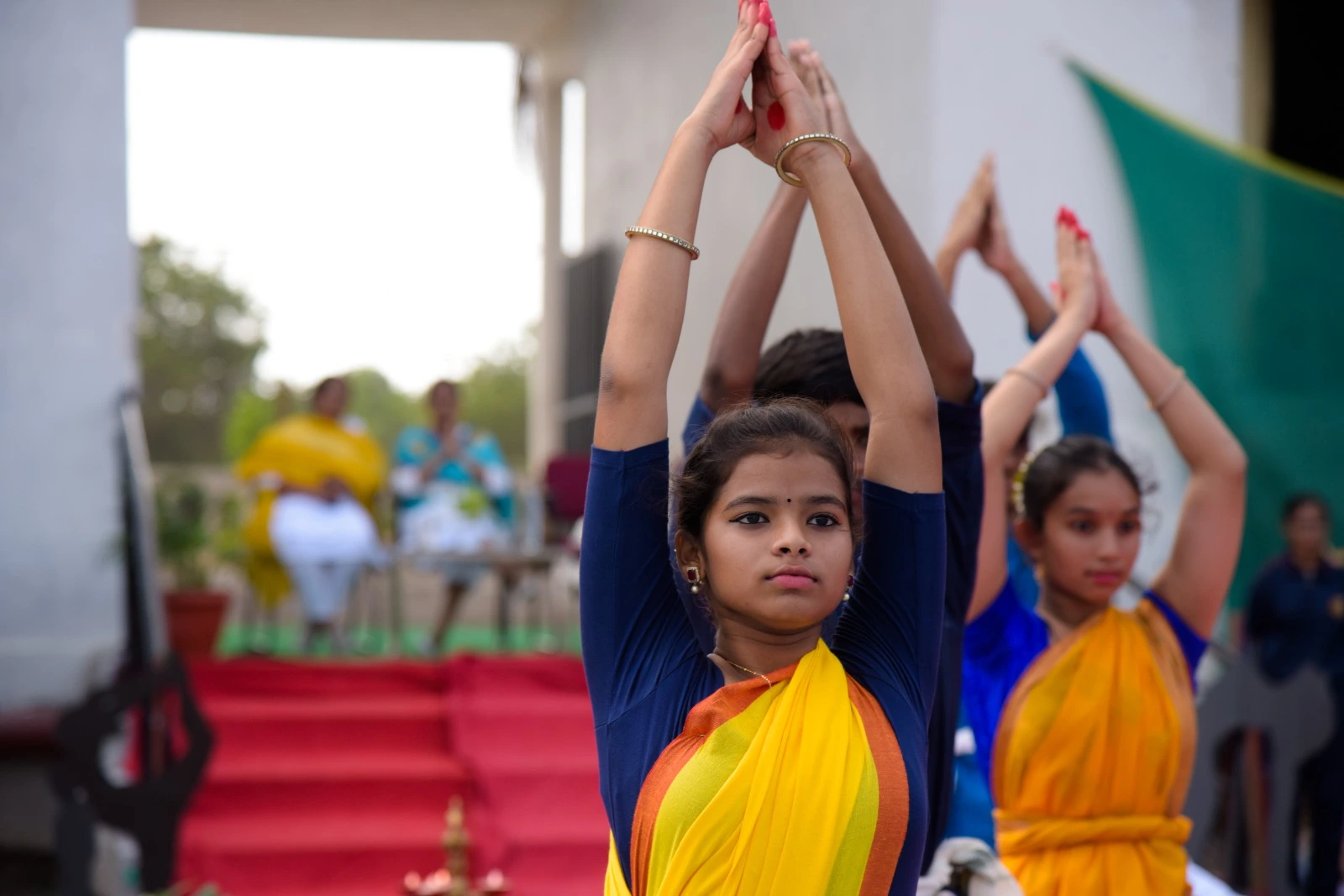
All Grades
Music, dance, arts, sports and club-based learning to nurture holistic growth.

All Grades
Music, dance, arts, sports and club-based learning to nurture holistic growth.
Play-based and inquiry-driven early learning journey.

Children learn through activities, songs, stories, and creative play. We focus on emotional, physical, and language development with joy and confidence.
Focus on reading, writing, listening, and speaking in English, Hindi, and Telugu.
Basic concepts like numbers, operations, time, and money with real-life connections.
Exploration of nature, body, and environment through observation.
Promotes empathy and cultural awareness.
Introduction to basic computer skills.
Encourages creativity through the visual arts.
Music, dance, and art for holistic growth.
Enhances motor skills and teamwork.
This foundation stage prepares young learners for future academic success.
Play-based and inquiry-driven early learning journey.

Children learn through activities, songs, stories, and creative play. We focus on emotional, physical, and language development with joy and confidence.
Interdisciplinary approach fostering curiosity, logic, and teamwork.

At Pallavi International School, the Cambridge curriculum nurtures holistic growth and joyful learning in the foundational years.
Rooted in NEP 2020, the primary curriculum fosters academic growth, creativity, and life skills through integrated and experiential learning.
Enhances reading, writing, and communication through text analysis, creative writing, role plays, and poster-making.
Covers operations, fractions, decimals, geometry, and data handling with real-life applications and math lab activities.
Focus on the environment, health, solar system, matter, and motion with hands-on experiments.
Introduces Indian history, geography, civics, and the Constitution.
Builds vocabulary and grammar through interactive methods.
Basics of PowerPoint, internet use, and digital literacy.
Introduction to programming and logic using Roboguru.
Enhances awareness and moral values through stories.
Encourages creativity and expression.
Builds confidence, leadership, and social-emotional skills.
Develops coordination, teamwork, and sportsmanship.
The curriculum ensures holistic development while preparing students for future academic success.
Concept clarity, foundation for board exams, and personal growth.

The middle years curriculum at Pallavi International School focuses on building strong academic foundations while developing critical thinking and analytical skills.
Advanced reading comprehension, creative writing, grammar mastery, and public speaking skills development.
Algebra, geometry, trigonometry, statistics, and mathematical reasoning with practical applications.
Physics, Chemistry, and Biology with laboratory experiments and scientific inquiry methods.
History, Geography, Civics, and Economics with focus on critical analysis and current affairs.
Hindi and Telugu with literature appreciation and cultural understanding.
Programming fundamentals, digital tools, and technology integration across subjects.
Leadership development, communication skills, and personal growth through various activities.
Visual arts, music, dance, and cultural programs to foster creativity and expression.
Sports training, fitness development, and competitive sports participation.
Subject selection guidance and preparation for higher education pathways.
This stage prepares students for board examinations while developing essential life skills and academic excellence.
Specialized learning paths, subject mastery, and competitive preparation.

The curriculum builds academic strength, practical skills, and personal growth.
English and one regional/foreign language to enhance communication and writing.
Covers algebra, geometry, trigonometry, and statistics for analytical thinking.
In-depth learning in physics, chemistry, and biology with lab work.
History, geography, civics, and economics for real-world awareness.
SEWA and creative activities for hands-on learning.
Focus on health, fitness, and yoga.
Covers core subjects, skill electives, and general studies with an emphasis on experiential learning, critical thinking, and life skills—preparing students for college, careers, and beyond.
Play-based and inquiry-driven early learning journey.

Children learn through activities, songs, stories, and creative play. We focus on emotional, physical, and language development with joy and confidence.
Registrations open for the academic year 2026 - 2027